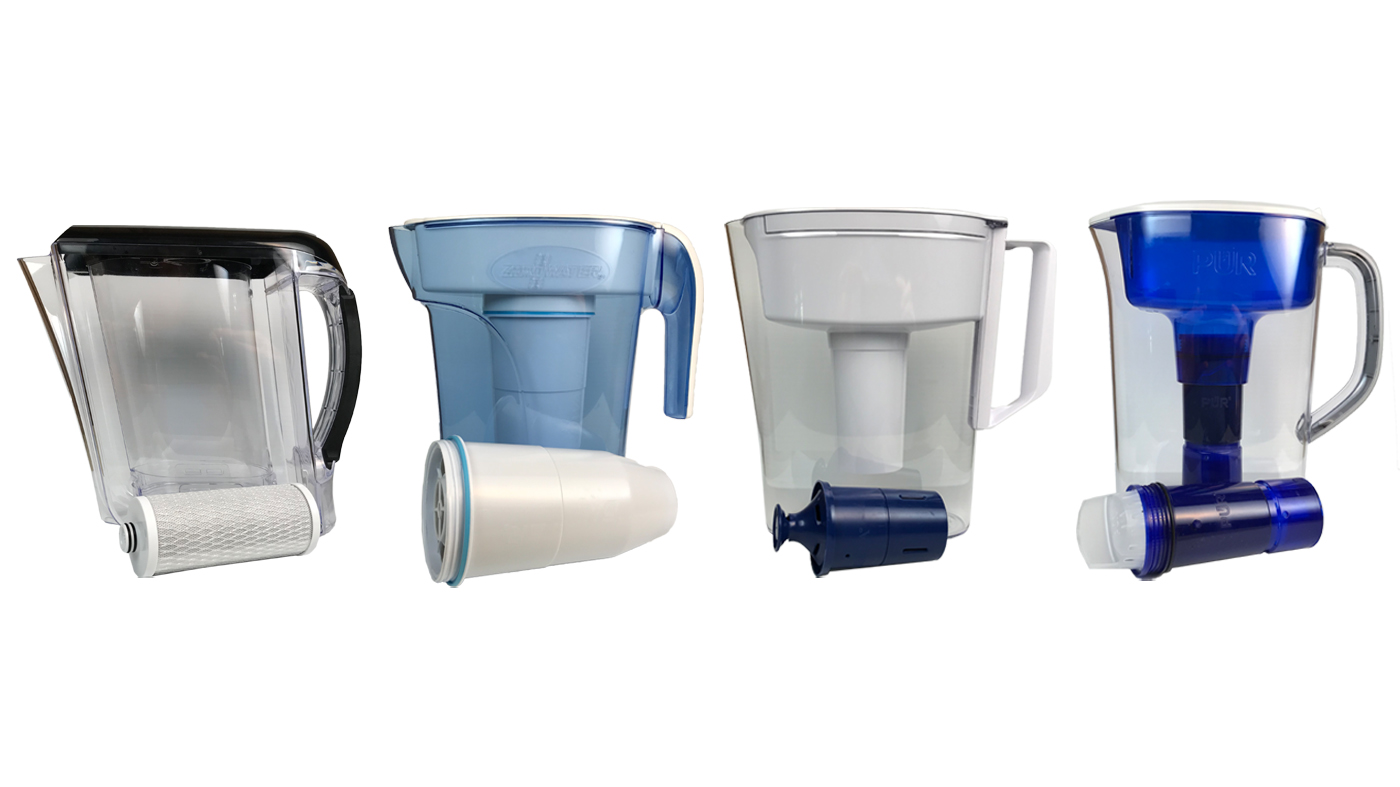
White Plains, New York, October 12, 2020 — Water filter pitchers claim to remove unwanted substances such as chlorine and toxic heavy metals from tap water. But how well do they really work -- and do they also remove microplastic particles? Recent ConsumerLab tests revealed significant differences in how well popular water filter pitchers work, including the finding that some filters may be adding plastic to the water you drink.
ConsumerLab purchased and tested four popular counter-top water filter pitchers from Aquasana, Brita, PUR, and ZeroWater. Each was tested for its ability to remove chlorine, lead, mercury, cadmium, and arsenic, microplastics, and dissolved solids (minerals, ions and other compounds that can affect taste) from tap water. ConsumerLab also measured how much fluoride filter pitchers removed, as this mineral is often added to water supplies to help protect teeth but, at high levels, can be dangerous.
The tests revealed big differences in how well the products removed microplastics, the small particles of plastic that can contaminate water sources. Based on tap water containing 33.5 microplastic particles per liter of water, the tests showed that one water filter removed all detectable microplastic particles, while two others reduced particles by 80% and 36%, respectively. Surprisingly, one pitcher increased the number of microplastics to 437.4 particles — a 1,206% increase. Even after additional flushes, the pitcher still added a significant, although reduced, amount of microplastic to the water.
All the pitchers were effective in removing lead, cadmium, and mercury, but they varied in their removal of arsenic, with two products removing all the arsenic from water and the other two removing 15% and 56%, respectively. Fluoride was removed completely by one filter, while the others removed 10.7% to 30.7% of fluoride in the water. Although not a health concern, ConsumerLab found that some of the pitchers released large amounts of carbon particles into the water.
ConsumerLab selected one water filter pitcher as its Top Pick due to its ability to effectively remove microplastics, chlorine, and many heavy metals, while leaving the most fluoride in the water. It also provided filtered water at the lowest cost.
The results are available online in ConsumerLab's new Water Filter Pitchers Review, which includes test results for four countertop water filter pitchers selected for testing by ConsumerLab based on reader requests: Aquasana, Brita, PUR, and ZeroWater. The review includes information about the occurrence of common contaminants in drinking water, including microplastics, toxic heavy metals such as lead, cadmium and arsenic as well as chemicals typically added to tap water such as chlorine and fluoride. The report discusses the use and cost of filter replacements, and provides tips for getting the best results from water filters. It also explains what features and certifications to look for when choosing a water filter pitcher.
Founded in 1999, ConsumerLab.com is a leading provider of consumer information and independent evaluations of products that affect health and nutrition. Membership to ConsumerLab.com is available online and provides immediate access to continually updated reviews of nearly every popular type of dietary supplement and health food, answers to reader questions, and product recalls and warnings. ConsumerLab also provides independent product testing through its voluntary Quality Certification Program. The company is privately held and based in New York. It has no ownership from, or interest in, companies that manufacture, distribute, or sell consumer products.
Members of the media contact may contact media@consumerlab.com or call the ConsumerLab.com main number (914-722-9149). Please include the name of your news organization when contacting us.





